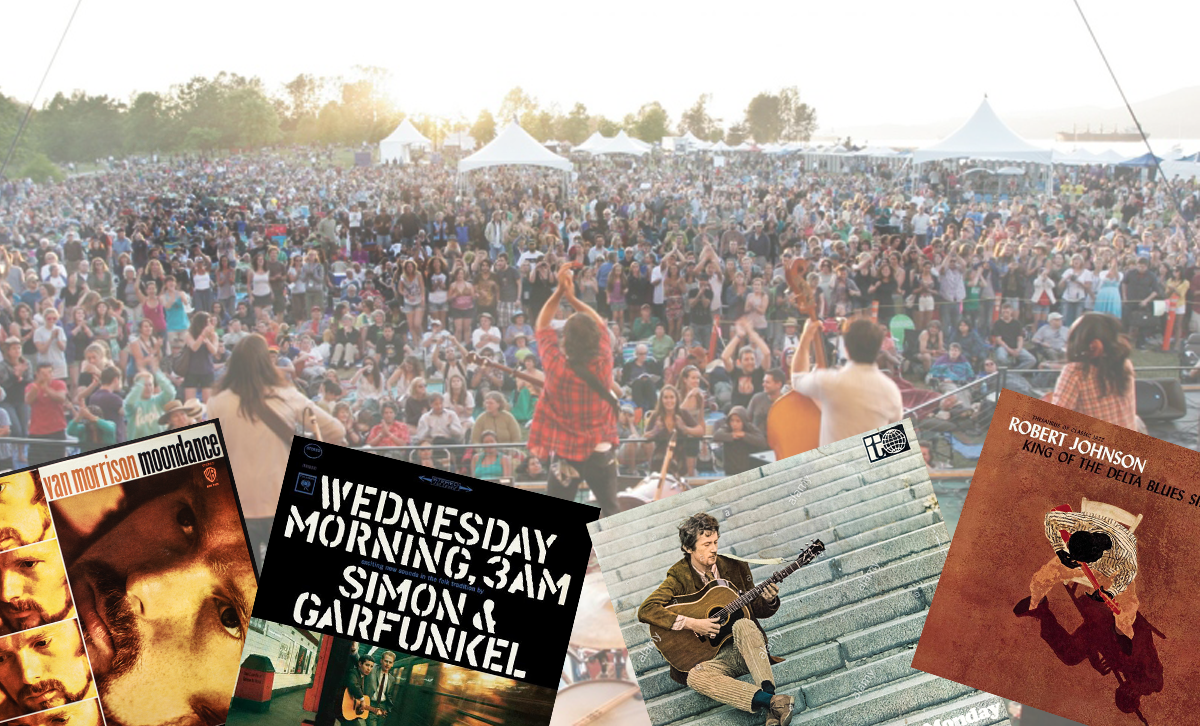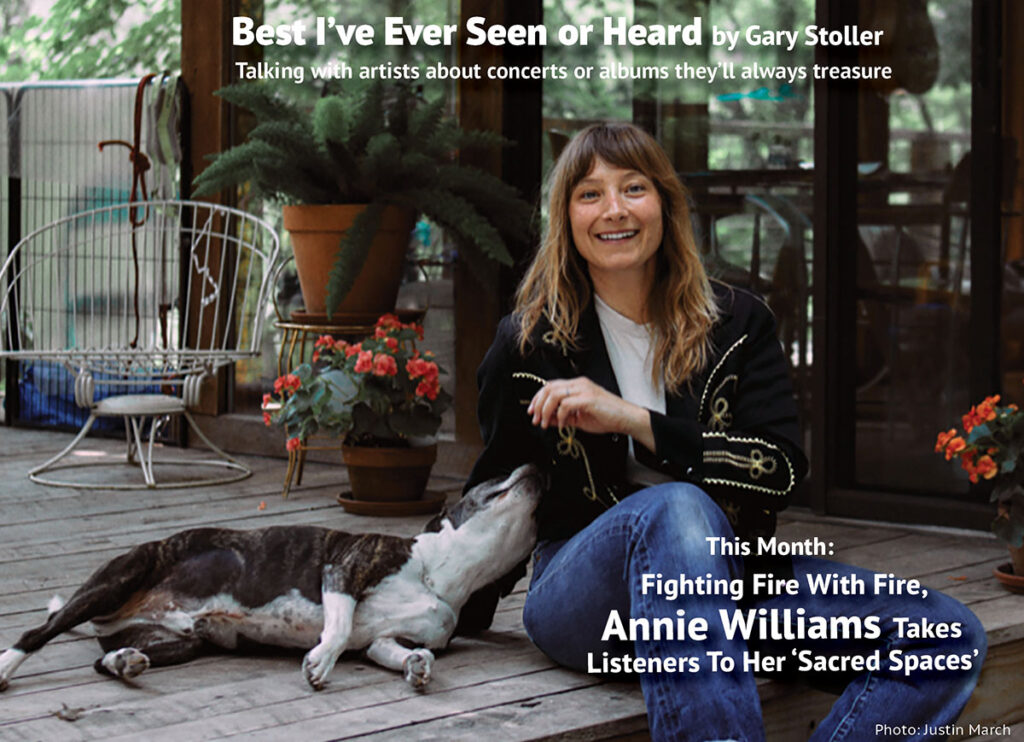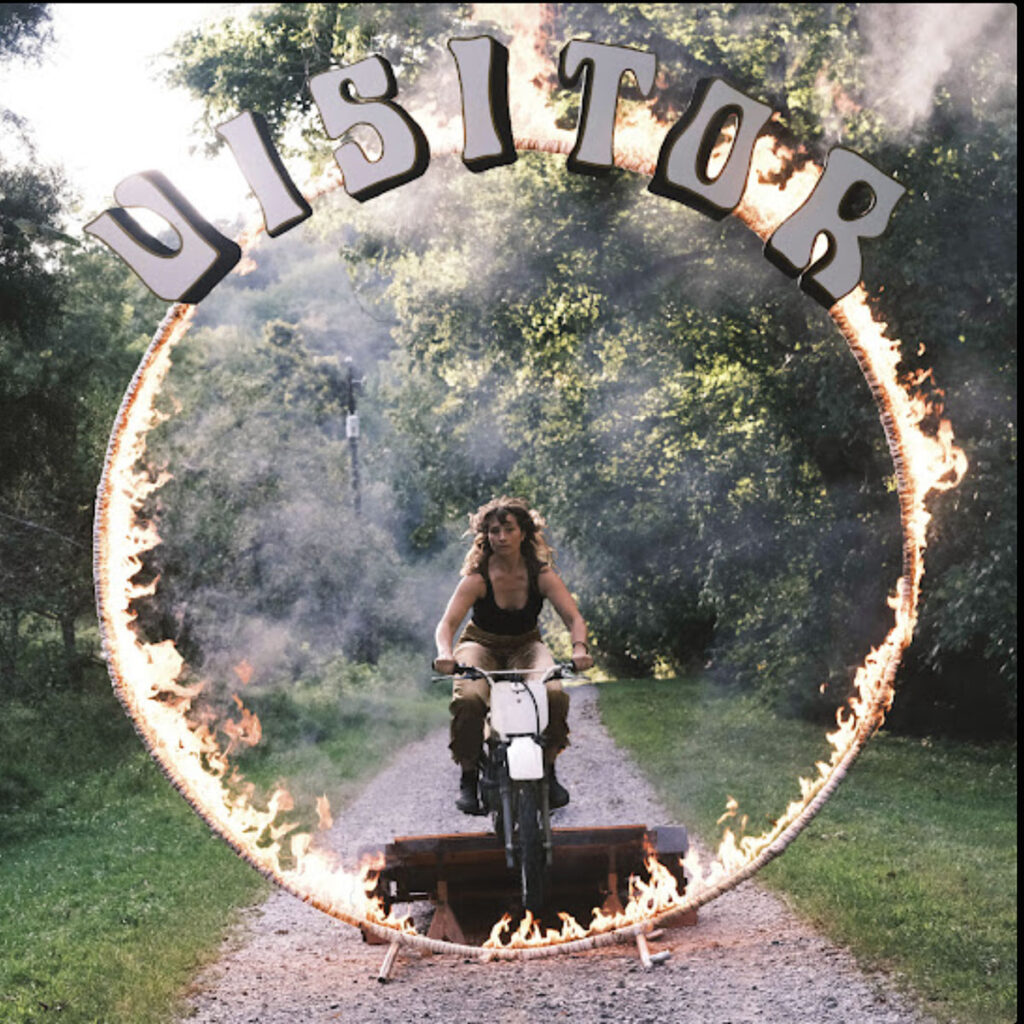

Annie Williams took a circuitous road before releasing her debut album Visitor last year. Nashville comedian-writer-podcaster Chris Crofton apparently understood the essence of those twists and turns.
Crofton says in the album’s notes that Williams’s songs “are sacred spaces” which take one to a church where kindness, flowers, coffee, music, waterfalls and being of service prevail.
“In Annie’s world,” he writes, “a lost dog (in the song ‘Midnight’), the movie Thelma and Louise (‘Louise’), a highway (‘Hwy 287’) and love (‘Oh My Love’) are all equally-worthy inspirations…In the midst of the 24-hour news cycle, it’s easy to lose track of what’s important. Annie’s songs gently, effortlessly — and joyfully — remind us to refocus.”
Williams knows all about the need to refocus. She, her husband Ben and their two young sons moved from Nashville to Altadena, California last July, and then devastating wildfires ignited early this year, destroying thousands of Southern California homes and killing at least 29 people.
“Ben needed to be near Joshua Tree and Bishop, California to climb, and I wanted to be in proximity to the arts happening in L.A.,” Williams tells me. “The fires didn’t make it to our house, but they burned down one of my son’s schools and two homes my husband was working on. We don’t have a safety net in LA, so we came back to our land in Nashville where Ben built a tiny house for my mom during the pandemic. It’s been a whirlwind and very heartbreaking time.”

Fire has a different connotation on the striking cover of Visitor, an album produced by Bill Reynolds of Band of Horses. Williams jumps through a homemade ring of fire atop her motorcycle. “No symbolism — just fun,” she says.

“My musical aim was to follow what sounded and felt best to me,” Williams says about the album. “I love Bob Seger, Bruce Springsteen and Joni Mitchell but also the Flashdance soundtrack and the Pointer Sisters. What I made is a baby born of those loves. I wrote lyrics and melodies that came from sudden inspiration and chipping away at recurring motifs that haunted me whenever I picked up the guitar.”
The powerful, dreamy title song “Visitor” expresses a lot of youthful pain. Here are some of the verses:
I showed up at your door
Provoking unearned scorn
I always seemed to ruin your day
I always seemed to get in your way
I was so young
Oh how oh how
How am I gonna visit now, love?
Just let go of it
Just let go
How am I gonna visit now, love?
Just let go of it
Just let go
Your fear showed all its horns
All fire, no remorse
I wanna forget what you did
But I cannot move on with it hid
I was just a kid
I was just a kid
You treated your cat nicer than me
And it was always so mean
You kept me at a distance
but while I was just a kid
you never explained why
“It took me a very long time to start writing vulnerable personal material under my own name,” says Williams, who recorded the songs on Visitor in 2017-2019.
She has recorded more than 120 songs during her musical career, but most will not reach public ears, because they were written and recorded for a publishing deal for film and television. She wrote under two aliases: Regina Price for Grey’s Anatomy, Inventing Anna and Virgin River and Ann Marr for Riverdale.
Williams’s musical talents were discovered when she was a student at the University of Wyoming.
“A label found me playing at a college party and ushered me to Nashville a few times,” she recalls. “It churned up a deep yearning to play and write, so I followed that desire and moved to Nashville in 2008.”
Two years later, Williams and her husband decided to take a year off and climb and relocated to Jackson Hole, Wyoming. Another venture also became paramount.
“I’ve been a freelance seamstress since college, and I started a handbag company that was successful enough to take over my life from 2011 to 2016,” Williams says. “During that time, I stopped performing and pursuing music but kept writing and playing for myself in my sewing studio.”
A Los Angeles-based publisher “bought some bags from my company, and we became friends,” Williams explains. “She listened to my old recorded music and immediately placed a song in Grey’s Anatomy. She signed me to her company, writing music for TV in 2017 when I was ready to jump ship from my handbag company.”
The artistry of other musicians has been a big influence on Williams. The best album she ever listened to is “a three-way tie” between the Braveheart soundtrack, Bruce Springsteen’s Nebraska and Koyaanisqatsi by Philip Glass.
“All these represent different times or acts in my life,” Williams says. “In childhood, I was obsessed with the Braveheart soundtrack. In my 20s, I was obsessed with Nebraska, and now, for the last 10 years, I’m obsessed with Koyaanisqatsi. Koyaanisqatsi captures emotions I feel every day that I cannot name. The film by Godfrey Reggio that the music was made for is equally emotionally charged for me and carries a message we should all hear: life out of balance. I am always trying to achieve balance — within myself, with nature, with my relationships.”

The best concert Williams ever attended was one performed by Mdou Moctar in Nashville in 2019. Moctar is an innovative singer-songwriter from Niger.
“They took it to the top but in such a nonchalant way,” she says. “It was like the music was their speaking voice, and we were in a conversation you’d have when all guards are down.”
The concert, though, that most influenced Williams was a Lucinda Williams show at the Ryman in Nashville last year.
“It was life changing,” Williams says. “Lucinda was extremely brave and opened the whole set playing the guitar for the first time after a stroke. It took her, maybe, seven long minutes to start, and the entire crowd waited in kind and supportive silence. People were weeping. Sharing music is a communal experience, and this one was heightened and so supportive. She then proceeded to share songs from her childhood until now with stories in between. So special. It’s what I want to achieve with my music — a shared vulnerable musical conversation about life and unfiltered human experiences.”
